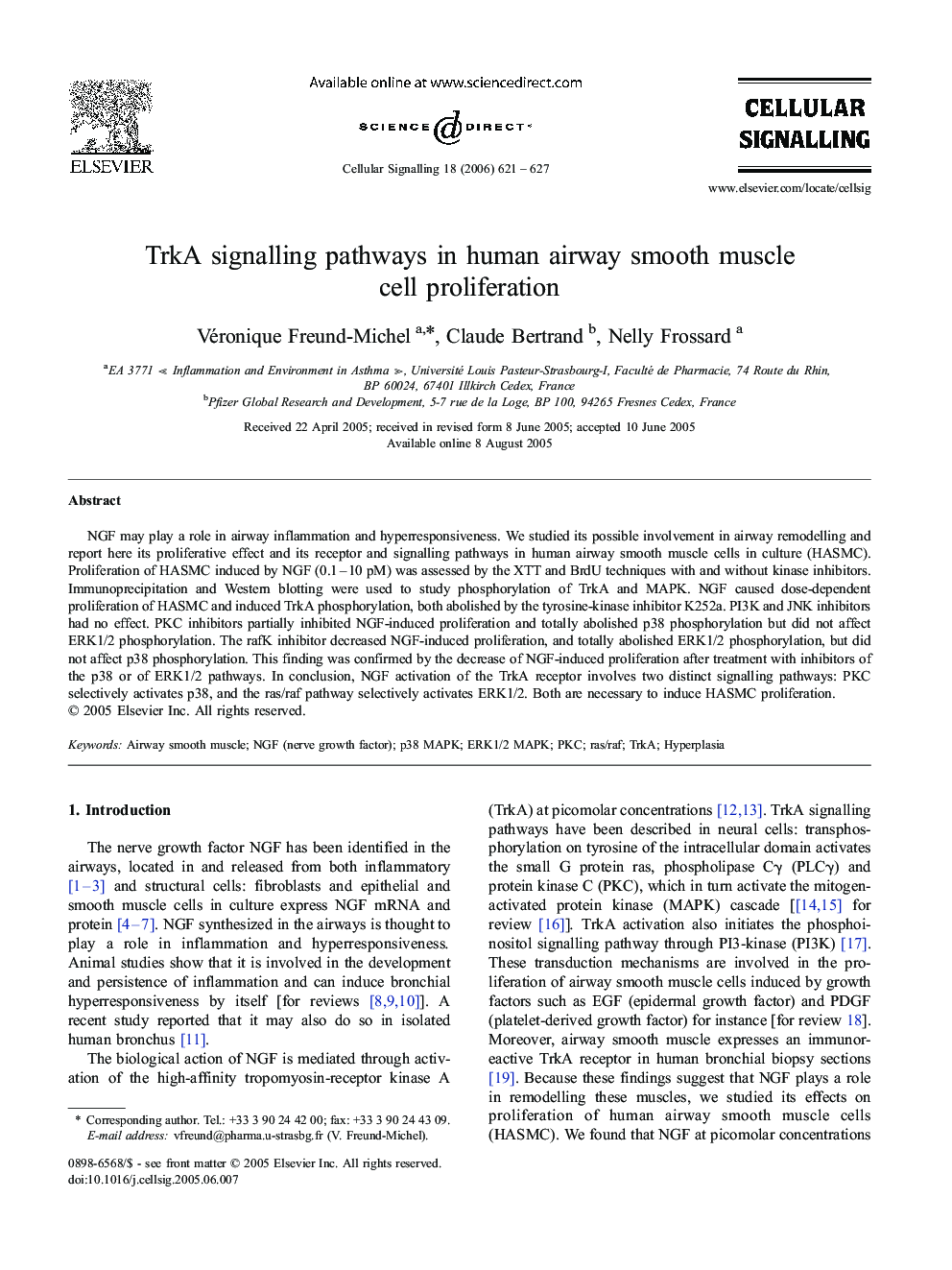| Article ID | Journal | Published Year | Pages | File Type |
|---|---|---|---|---|
| 1964589 | Cellular Signalling | 2006 | 7 Pages |
NGF may play a role in airway inflammation and hyperresponsiveness. We studied its possible involvement in airway remodelling and report here its proliferative effect and its receptor and signalling pathways in human airway smooth muscle cells in culture (HASMC). Proliferation of HASMC induced by NGF (0.1–10 pM) was assessed by the XTT and BrdU techniques with and without kinase inhibitors. Immunoprecipitation and Western blotting were used to study phosphorylation of TrkA and MAPK. NGF caused dose-dependent proliferation of HASMC and induced TrkA phosphorylation, both abolished by the tyrosine-kinase inhibitor K252a. PI3K and JNK inhibitors had no effect. PKC inhibitors partially inhibited NGF-induced proliferation and totally abolished p38 phosphorylation but did not affect ERK1/2 phosphorylation. The rafK inhibitor decreased NGF-induced proliferation, and totally abolished ERK1/2 phosphorylation, but did not affect p38 phosphorylation. This finding was confirmed by the decrease of NGF-induced proliferation after treatment with inhibitors of the p38 or of ERK1/2 pathways. In conclusion, NGF activation of the TrkA receptor involves two distinct signalling pathways: PKC selectively activates p38, and the ras/raf pathway selectively activates ERK1/2. Both are necessary to induce HASMC proliferation.
